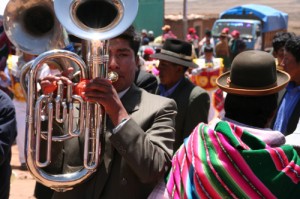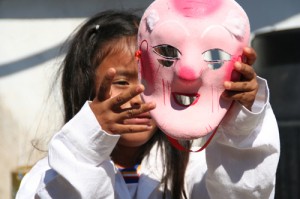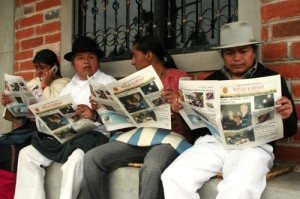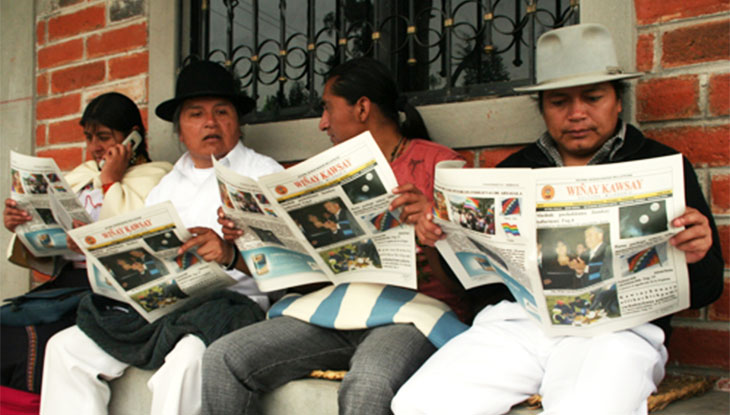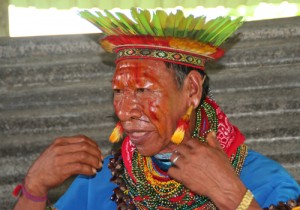 Since 1986, Traditions for Tomorrow, an international non-governmental network, accompanies the efforts of Indigenous People and minorities concerned to safeguard their cultural identity in a dozen countries of Latin America. Several hundreds of very concrete cultural or educational initiatives, chosen and conducted by the groups, were carried out in the field, thanks to the support of members and donors, and public or private grant-makers. Traditions for Tomorrow contributes to strengthening confidence, self-esteem and dignity, to the restructuring of communities and to helping them face the challenges they are confronted with: this is “empowerment” through revitalizing intangible cultural heritage.
Since 1986, Traditions for Tomorrow, an international non-governmental network, accompanies the efforts of Indigenous People and minorities concerned to safeguard their cultural identity in a dozen countries of Latin America. Several hundreds of very concrete cultural or educational initiatives, chosen and conducted by the groups, were carried out in the field, thanks to the support of members and donors, and public or private grant-makers. Traditions for Tomorrow contributes to strengthening confidence, self-esteem and dignity, to the restructuring of communities and to helping them face the challenges they are confronted with: this is “empowerment” through revitalizing intangible cultural heritage.
Besides, Traditions for Tomorrow is also active in advocacy activities towards public institutions and non-governmental organizations both at national and international level (UNESCO Official NGO Partner, EU, WIPO, UN-ECOSOC), on topics concerning Indigenous People, diversity of cultural expressions, living cultural heritage and intellectual property.
Domain(s): Oral traditions and expressions, including language as a vehicle of the intangible cultural heritage; social practices, rituals and festive events; knowledge and practices concerning nature and the universe; traditional craftsmanship.
Main Safeguarding measures: a) identification, documentation; b) preservation, protection; c) promotion, enhancement; d) transmission, (non-) formal education; e) revitalization
Identification: raising awareness amongst communities and people, holders of intangible cultural heritage on the value of this heritage both for themselves and for others. Emphasis is put on the expressions connected with nature and the relation to the environment in general, with consideration given to spirituality and traditional social relations
Documentation: always connected with revitalization, documentation is produced in some of the projects through various media support (books, digital for websites, TV programs, newspapers, etc.)
Preservation, protection, promotion, enhancement: valuing the role of elders, holders of the traditional knowledge, supporting cultural gathering, events (concerts, festivals), exhibits, exchange of knowledge, schemes to protect intellectual property and sensitize ICH holders on those issues, restoration of ritual centers, maintenance of natural environment close to these centers, etc.
Transmission, (non-) formal education: supporting intercultural-bilingual alternative forms of education through training of educators, building of infrastructures, pedagogical publications, school museums, interethnic programs; multimedia dissemination of knowledge (radio, audiovisual, TV and internet, newspapers, etc.), creating tools to bridge intergenerational gaps.
Revitalization: numerous projects dealing with theater, music, festivals, oral tradition, language, dance, rituals, traditional healing processes, agriculture and cattle breeding, traditional and contextualized building techniques, etc.
Main countries where the NGO works: Latin America in general
Local, national or international level of the NGO: Local, national and international 